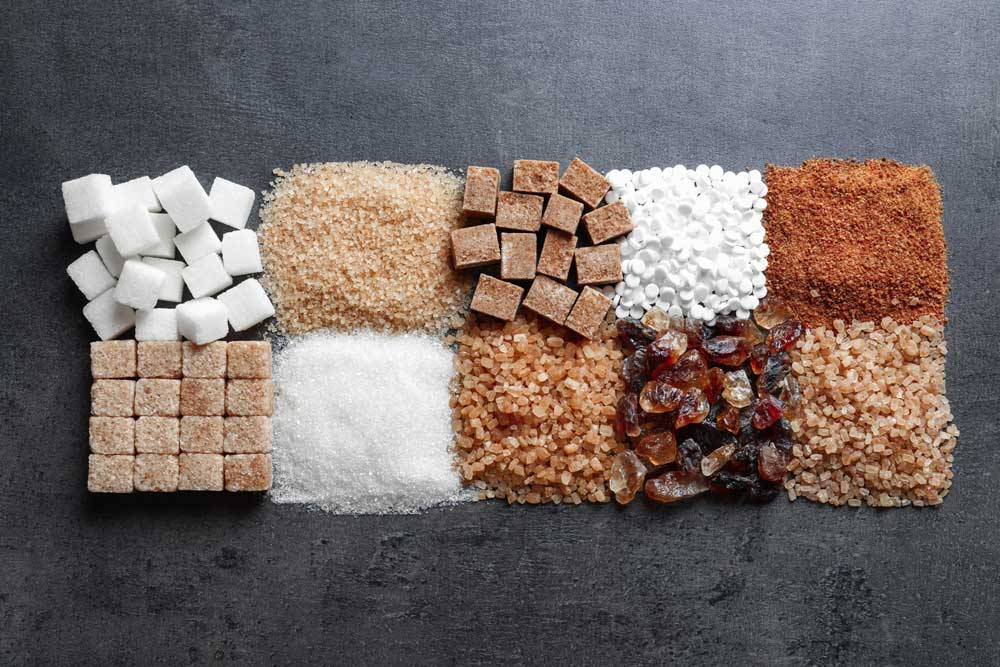A spoonful of sugar might help the medicine go down, but there’s certainly enough reason to believe it might be causing the ailment itself! The World Health Organization recommends that total sugar intake should be kept below 10 per cent of an individual’s daily calorie consumption – this includes both natural and artificial sugars. Excessive sugar consumption can lead to various health issues and risks over time, the most common among which is Type 2 diabetes. It can also cause other ailments such as cardiovascular diseases, obesity, and cancer.
The Benefits Of Sugar Substitutes
Dr Ketaki Viswanathan, a diabetologist, admits that there are certain pros to sugar substitutes, foremost among which is that they do not raise blood sugar levels in the same way that both natural and processed sugars do. ‘Another factor in favour of artificial sweeteners is that they are low or no-calorie sugar substitutes. As the name suggests, you have sweetness, but without the extra calories. This helps with effective weight management. These also do not contribute to tooth decay, making them ideal in sugar-free gum and chocolates. They tend to be heat-stable and can be used in various kinds of cooking and beverages. For diabetics looking for sweet treats, artificial sweeteners can be a boon. But that doesn’t mean that there are no downsides.’

What The FSSAI Says
According to a statement by The Food Safety and Standards Authority of India (FSSAI), caloric sweeteners are ‘substances having greater than 2 per cent of the caloric value of sucrose per equivalent unit of sweetening capacity. These include Sorbitol, Sorbitol syrup, Mannitol, Isomalt, Polyglycitol syrup, Maltitol, Maltitol syrup, Lactitol and Xylitol. Non-caloric sweeteners include Erythritol, Steviol glycoside, Thaumatin, Aspartame, Sucralose, Neotame, Acesulfame potassium, Aspartame-Acesulfame potassium salt and Saccharins.’
The FSSAI has laid down safety limits for noncaloric sweeteners as additives to be used in various food products on the basis of risk assessment and ADI (Acceptable Daily Intake) established by JECFA (Joint Expert Committee on Food Additives) and also in harmonisation with Codex. The statement adds, ‘It may be pertinent to note that FSSAI has not recommended these NSS for weight loss or maintenance of healthy weight, and as a means of controlling blood glucose in individuals with diabetes. Further, stricter labelling requirements are in place which require due declarations on the food labels along with the names where such sweeteners have been added either singly or in combination.’
The Downsides Of Non-Sugar Sweeteners
While artificial sweeteners have a lot going for them, Dr Ketaki warns that they can also wreak havoc on your gut health. ‘All artificial sweeteners impact your gut in some way, but sucralose and saccharins can particularly cause an imbalance in your gut microbes and adversely affect beneficial bacteria. Sweeteners like Stevia are made from plant extracts, and these are considered less harmful on the digestive tract than other sugar substitutes. However, since it is processed, we cannot say with certainty that there are zero side effects since in-depth research is still ongoing. Not all sugar substitutes or sweeteners are the same.’
In A Nutshell
Dr Ketaki says, My advice would be to speak to your medical practitioner, who has your individual case history and risk factors documented. Pregnant women should especially be careful while consuming both sugar, and sugar substitutes. Seek medical advice before you decide which sweetener is right for you.’
Whole fruits, although they have a higher GI than artificial sweeteners, are a healthier option because of their nutritional profile. They contain fibre, vitamins and minerals, making them the better alternative. Sugar substitutes and sugar do not really contain any nutrients, so this is a no-brainer. Dates are a good natural sweetener if you’re not watching your weight. Children should never use artificial sweeteners. Even those with tooth decay and health problems should seek out a paediatrician’s advice before deciding on an alternative. For those who have been advised artificial sweeteners for medical reasons, limit it to small quantities so that you are able to preserve your gut microbes and also assess its impact on your overall health.